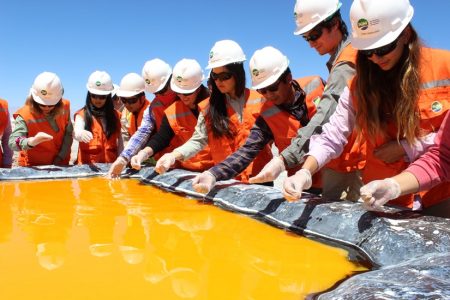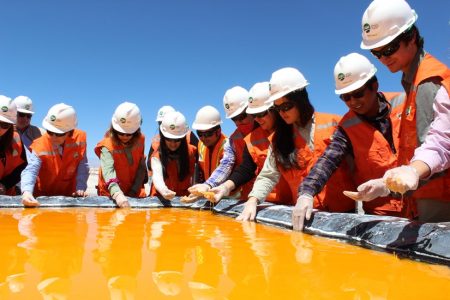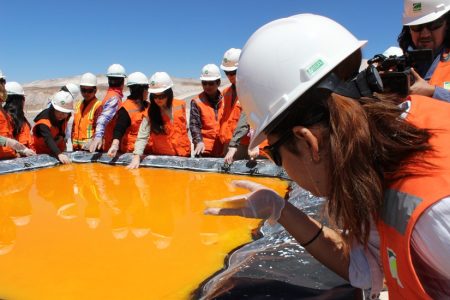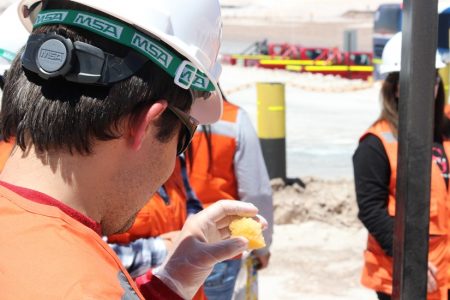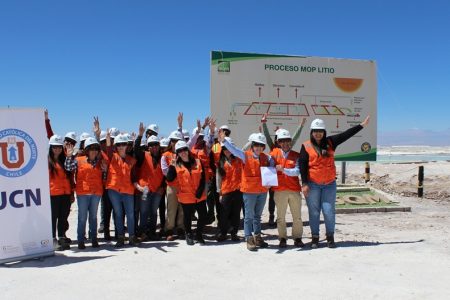
SQM and Universidad Católica del Norte Sign Agreement to Study Microorganisms in Brine
04/Nov/2019
The study consists of determining until what point in the brine concentration process live microorganisms can be found. The initiative is a significant milestone for local scientific research, since there is no conclusive evidence about life in water with high salt concentrations.
Brine concentration is a key link in the lithium production chain, a process conducted using evaporation ponds where solar energy plays a fundamental role. These ponds reach a salinity level of more than 40 times the concentration of salt water.
An agreement between SQM and Universidad Católica del Norte (UCN) will help determine at which stage of the brine concentration process do microorganisms live and from what point it is no longer possible to find “life” because of high salt concentrations.
Cecilia Demergasso, director of UCN’s Biotechnology Center, explained that the research will center around extracting and studying DNA in the brine at different stages. “For the past 20 years we have been developing studies on this topic and today we have the molecular techniques and methodologies to obtain concrete results. This type of study has been conducted in other environments but the lithium process is a very interesting system for understanding the water’s activity limit at which we see microorganisms and live microorganisms,” the researcher remarked.
“The objectives of the agreement signed with SQM are to produce high-quality research and publish it to make it available to the entire scientific community,” Demergasso added.
Alejandro Bucher, Environment and Community Senior Vice President for SQM Salar, expressed: “This partnership with UCN is a very important milestone for us. Even though we are continuously collaborating with Chilean and foreign universities, this time we have decided to push the envelope and sign this agreement to generate ongoing, organized cooperation. The fact that this unique study will generate important information for the scientific community makes it even more significant.”
The signing of this agreement was preceded by a tour of the Salar de Atacama operations by faculty and students from UCN to show them the lithium production process. Diego Puca, a geology student originally from Toconao, was one of the members of the delegation. He commented, “It is a good experience to come here to see on site how the company works and learn about their processes, since sometimes one has the wrong idea. As a future geologist, I am interested in knowing more about hydrogeology and aquifers, so this visit has helped me gain new knowledge.”
The research work formalized in this agreement between SQM and the university will last for three consecutive years.
